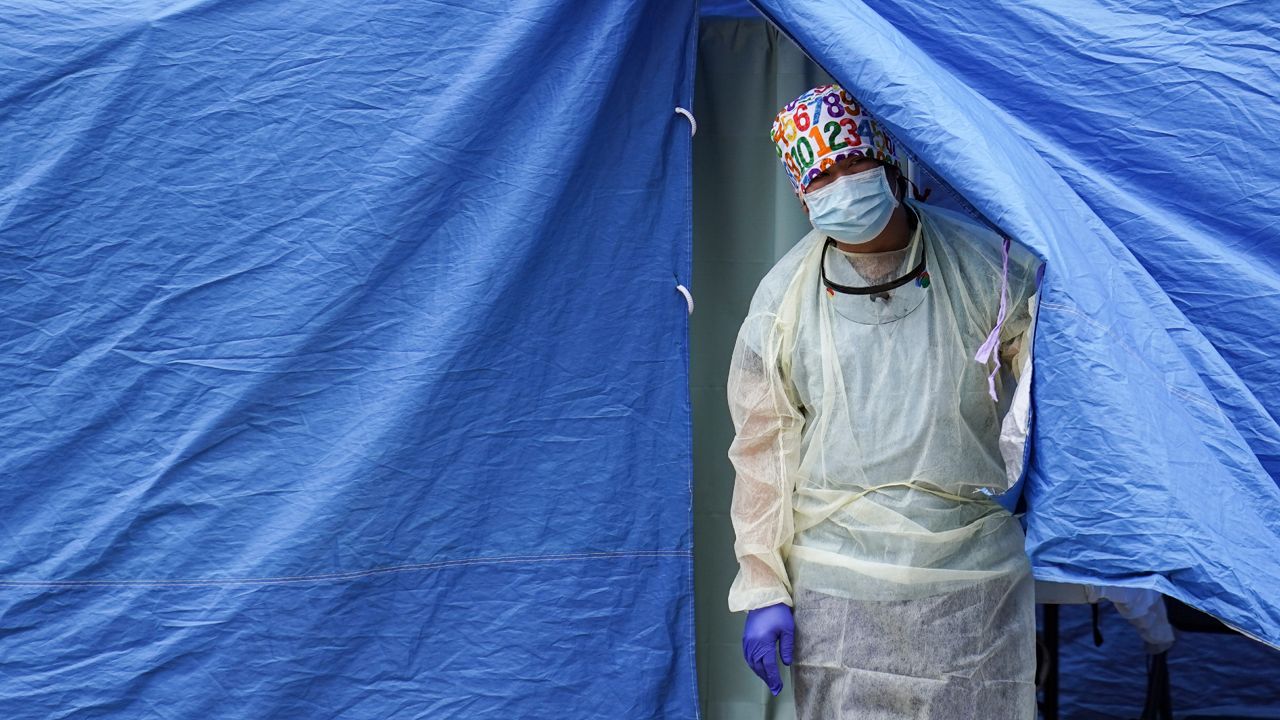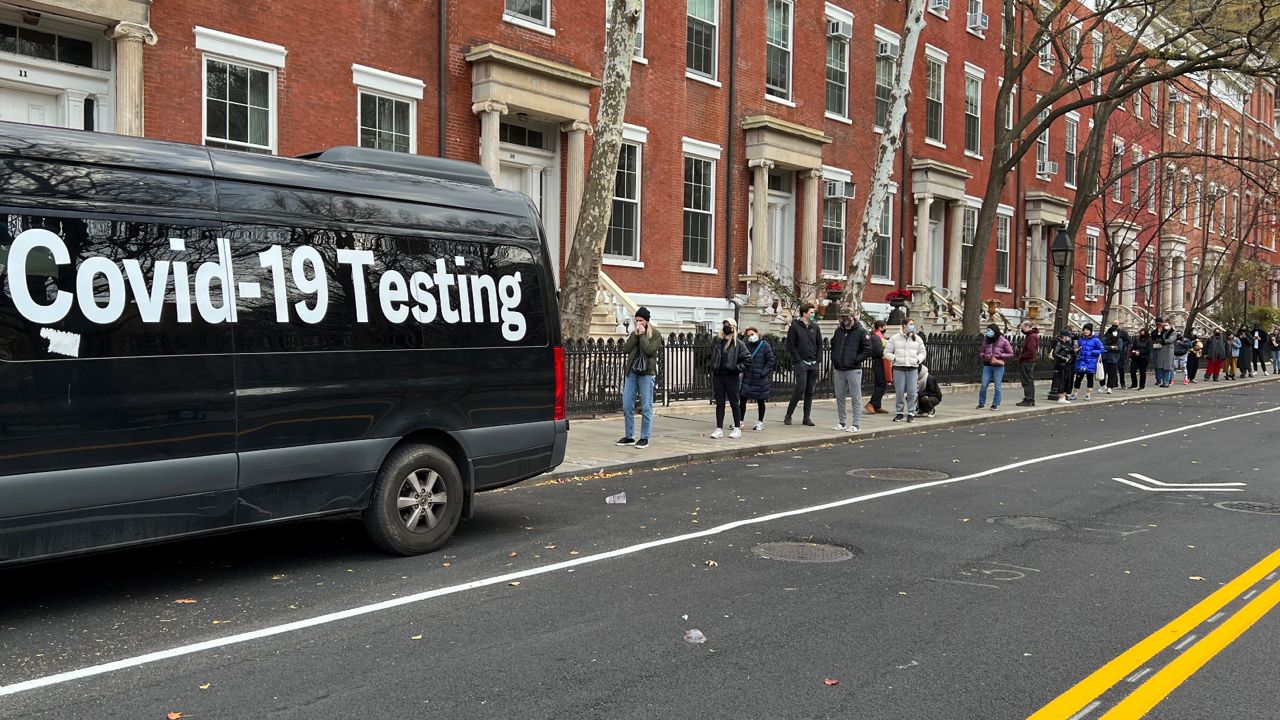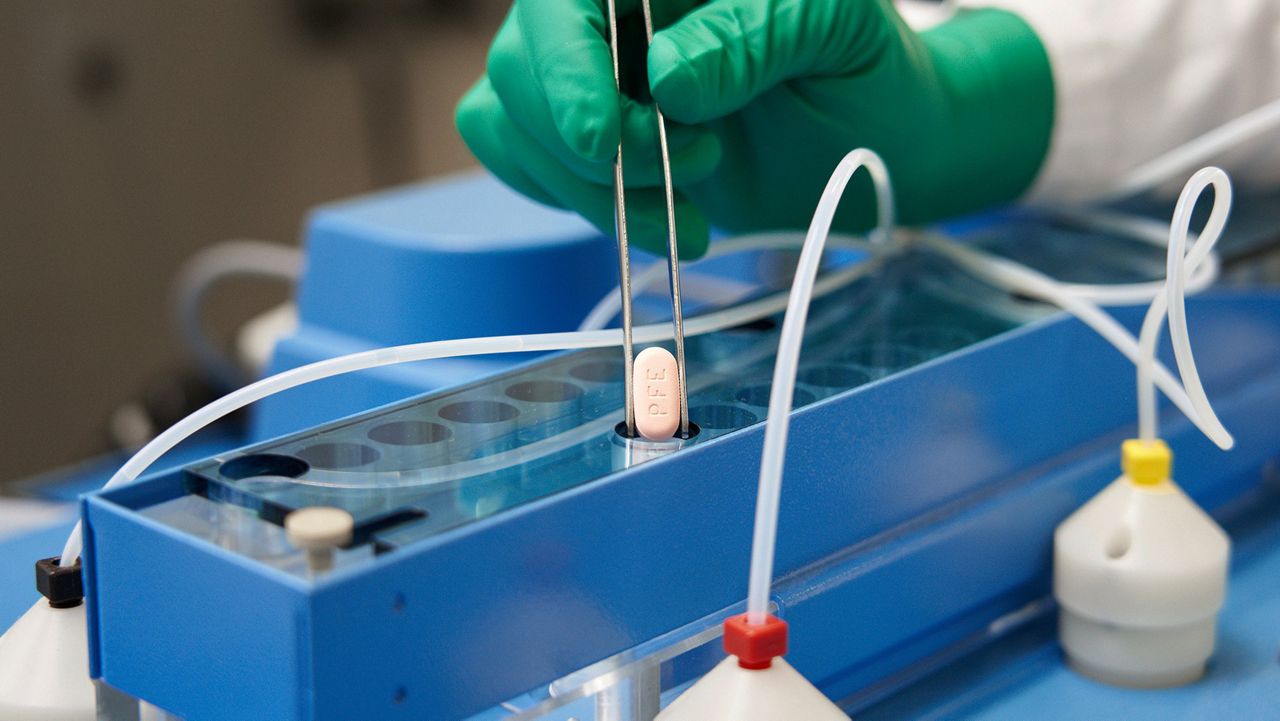NEW YORK — “There’s definitely a light at the end of the tunnel,” said Dr. Eric Appelbaum, chief medical officer at St. Barnabas Health System in the Bronx.
The borough ranks among the top five counties with the highest number of fatalities from COVID-19 in the country, according to the Johns Hopkins Coronavirus Resource Center.
Treating patients on the front lines during the first wave taught lessons and provided experience.
“We are seeing some better results,” Appelbaum said.
A lower emergency department volume as compared to the spring months is allowing doctors to begin treating patients with COVID-19 earlier and sooner.
“Remember in the beginning we would say, ‘Patient probably has COVID, we don’t need to test you. Why don’t you go home?’" Appelbaum said. "Now we are saying, ‘Hey, you’re a diabetic, high blood pressure, your oxygen is good, but we are going to start you on oxygen anyway.’”
Appelbaum explains that earlier treatment is making a difference.
And doctors are learning that oxygen therapies other than ventilators are effective and safe, adds Dr. Adel Bassily-Marcus, director of surgical intensive care at Mount Sinai. This means fewer patients are being placed on ventilators, which can invite complications.
“We are comfortable using non-invasive devices like the high flow oxygen. We were concerned early on that this may spread the virus more, maybe this is not a good therapy. We don’t have evidence of that,” said Bassily-Marcus.
Additional therapies, like Remdesivir, are also making a difference. Providers have learned that treating patients with the antiviral drug sooner, before they require a ventilator, is helpful.
“It has some benefit for people with COVID. It’s not a cure, but that benefit, we have learned, is more pronounced when it is started earlier in the course of illness,” explained Dr. Ed Chapnick, director of infectious diseases at Maimonides Hospital in Brooklyn. “We didn’t know that when [Remdesivir] first came out. It’s a learning process and the more we learn, the better we are able to treat people.”
Also, steroids are improving patient outcomes. The drugs are effectively managing the body’s inflammatory response, which can damage vital organs, doctors say.
With progress made, there’s still a lot to learn about treating COVID-19.
“I would not use the word ‘confident’ yet because [we] certainly don’t have anything that’s a cure,” Chapnick said. “I guess the best way to put it is it’s become less of an unknown,” he said.
“Experience matters and unfortunately all of us who were here in April, we got the experience. We know what we are dealing with. We know how things can progress rapidly, we know how things can get worse. We know what to expect,” said Bassily-Marcus.
“Every day, every week that goes on, we are getting a little bit better, learning a little bit more about the virus,” Appelbaum said.
------
Did you know you can now watch, read and stay informed with NY1 wherever and whenever you want? Get the new Spectrum News app here.
-----
Further Coronavirus Coverage
What to Do If You Test Positive for COVID-19
Who Will Get a Coronavirus Vaccine First — And Who Decides?
How Hospitals Protect Against the Spread of Coronavirus
Coronavirus Likely Spreads Without Symptoms
Coronavirus: The Fight to Breathe
Experts Say Masks Are Still a Must
The Race for a Coronavirus Vaccine
The U.S. May Face a Second Wave of Coronavirus Infections
Cuomo Granted Broad New Powers as New York Tackles Coronavirus








